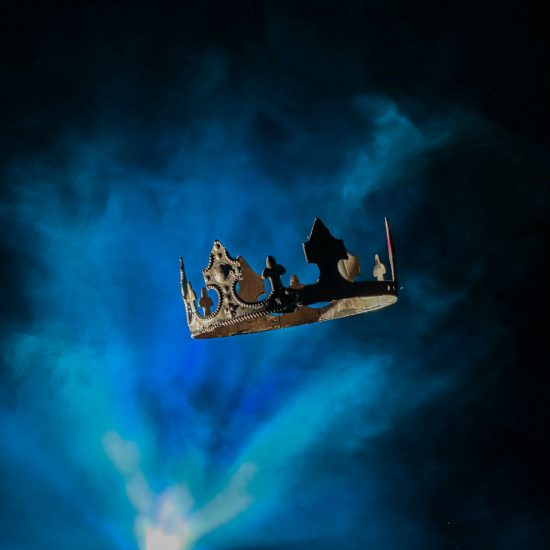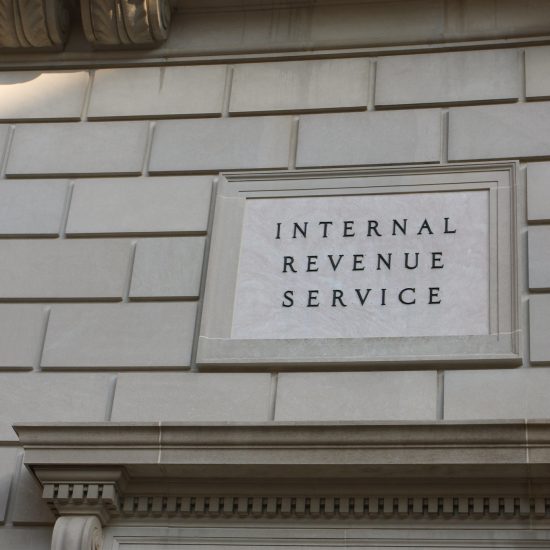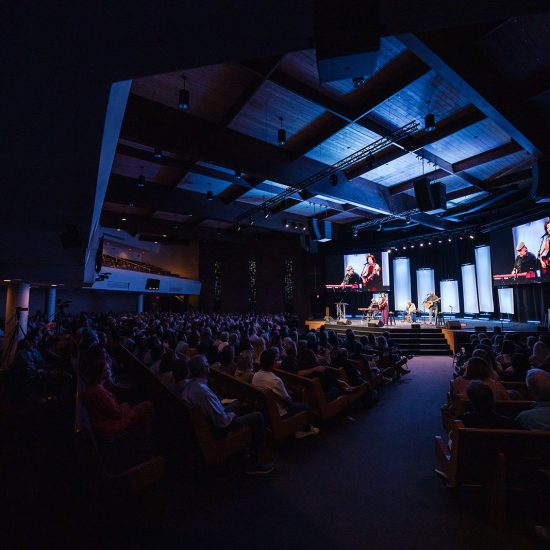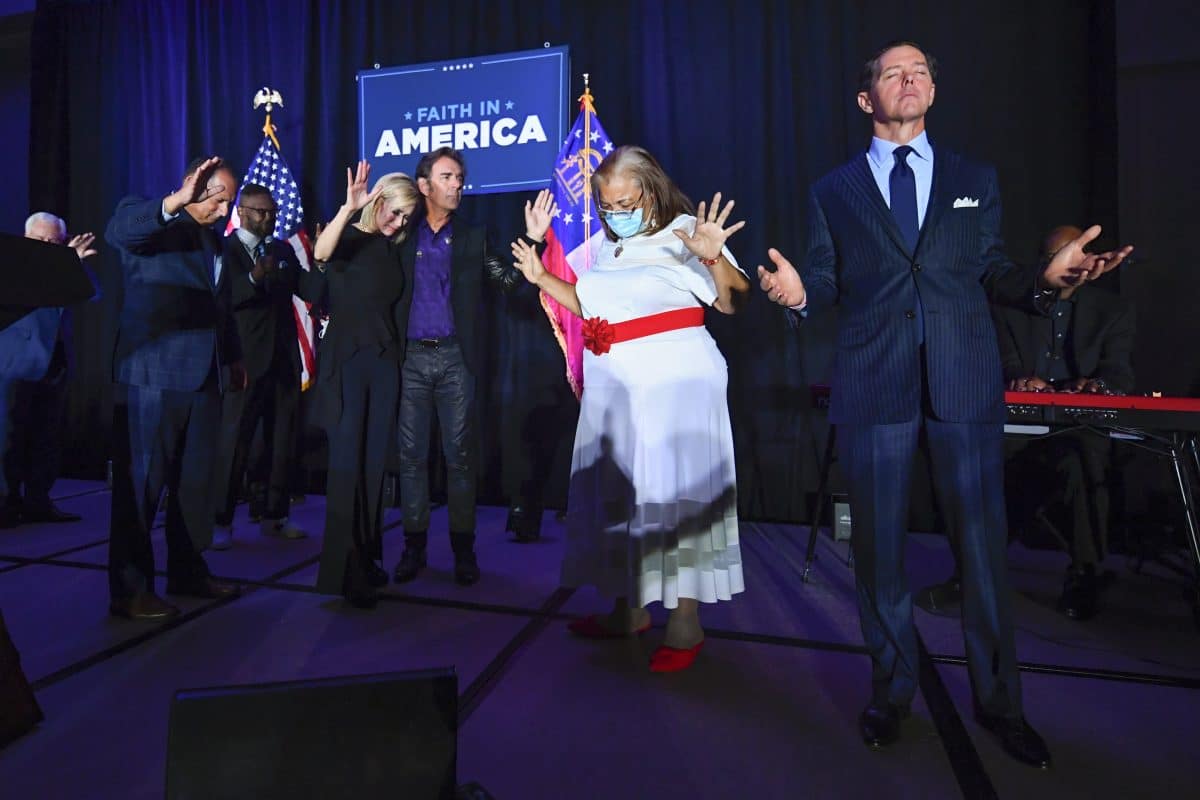
Last Wednesday night (July 20), former Vice President Mike Pence went to church. That’s not unusual for a politician long known for his Christian faith. But it raised some eyebrows when the Indiana resident showed up at the pulpit to speak in a large Baptist church in South Carolina.
As he preached his old-time message of conservatism with the robed choir behind him and the congregation applauding, the message was clear: Pence is running for president.
Pence focused his remarks at Florence Baptist Temple on celebrating that “Roe v. Wade has been sent to the ash heap of history where it belongs.” But his eye wasn’t on last month’s Supreme Court decision as much as on the next presidential election.
While it might seem too early to think about the 2024 presidential election — especially in these days when COVID still has us wondering if we can make plans for next month — politicians are already hitting the circuit ahead of officially announcing their candidacies later this year or early next year. And as several Republicans test the campaign waters, they’re doing so by reaching out to a familiar base: conservative White evangelicals.
Especially in key early voting states like Iowa and South Carolina. As Pence said about the latter, it’s a state “that so shapes the life of the nation.” Likely alluding to Donald Trump’s critical 2016 primary win in the Palmetto State, Pence said that “because of South Carolina we had the leadership we needed in Washington, D.C.,” to lead to the overturning of Roe. He specifically thanked them for giving “your support and your prayers” to make possible the confirmation of three new Supreme Court justices.
“I couldn’t be more grateful to have the privilege to be vice president in the most pro-life administration in American history. The Trump-Pence administration every single day stood for the sanctity of human life,” he added to amens while ignoring the days when the administration used capital punishment, attacked refugees, or blocked efforts to address climate change.
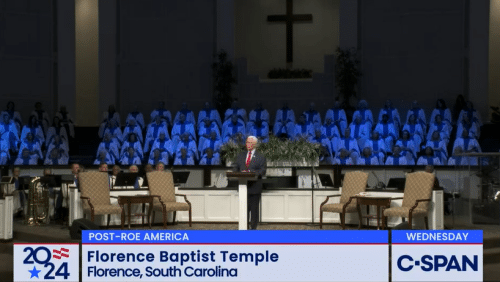
Screengrab as Mike Pence speaks at Florence Baptist Temple on July 20, 2022, in Florence, South Carolina.
Pence went on to attack “a new administration” and “Democrat [sic] majorities in the Congress” for pushing pro-choice policies and trying to undermine the recent Supreme Court ruling. So, he encouraged people to keep engaging in anti-abortion politics at the state level since “it’s ‘for such as time as this’ that our generation has reached this position.” He then specifically endorsed three 2022 Republican candidates, which could put the church in direct violation of IRS tax rules that bar such partisan politicking by 501(c)(3) tax-exempt nonprofits.
“Continue to do your part to elect pro-life leaders at every level,” he said after quoting several Bible verses to justify this advocacy. “Please reelect Gov. Henry McMaster for four more years at the statehouse. Please send Sen. Tim Scott back to a Republican majority in the United States Senate. And while you’re at it, send Russell Fry to a new Republican majority in the House of Representatives.”
All three endorsements sparked loud applause in the sanctuary. (Fry recently won the Republican nomination after defeating incumbent Republican Rep. Tom Rice, who dropped in popularity after voting to impeach Trump for his behavior in encouraging the Jan. 6 insurrection.) Pence left unsaid his hope that the congregation would eventually support him. But since he’s not officially running yet, he had to keep up the pretense.
Pence’s beta campaign speech during a church service last week wasn’t an anomaly. Several other potential Republican candidates have also been reaching out to conservative White evangelicals in recent weeks. So, in this issue of A Public Witness, we look at the enduring influence of White evangelicals within the GOP power structure, the early stages of the 2024 presidential campaign, and what it tells us to expect in the months and years ahead.
Here a Candidate, There a Candidate
After the U.S. Supreme Court ruled last month for a public school coach who led his students in audible, public prayers while on school property during official school activities, Mike Pompeo launched a video ad. At first blush, that seems odd. The former secretary of state and CIA director during the Trump administration isn’t in office nor on the ballot. And he’s from Kansas, far from the Washington football field that sparked the suit. But his potential run for the White House makes the calculus of the ad clear. His strategy of what to highlight for his first ad is also quite telling.
The digital ad that ran in Iowa and South Carolina opens with a shot of the Supreme Court building and a news voice mentioning the school prayer case. Then the video goes through a montage of religious stock footage featuring a cross, a rural church building with a rising sun, young girls praying in a farm field, a family praying at a dinner table, a woman praying over a sick child, and scenes of prayer and singing inside a large contemporary church service. While the shots fill the screen, Pompeo talks about words and actions that “lift us, inspire us, save us.” Once on screen, he adds, “I’m Mike Pompeo, and this is who we are. Together let’s make sure that our religious freedom and our right to pray are never canceled.” And then it ends.
Pompeo’s not officially running yet, so he can’t urge a vote. But the fact that his first ad is one talking about prayer should signal where he thinks he’ll find political salvation in the 2024 presidential primaries. Nor is this an isolated effort. Late last year, he spoke at Hillsdale College, the conservative Christian school in Michigan attempting to undermine public education across the country. During that speech he hinted at the kind of religious politicking he hopes will win him votes.
“Church and state are something the left has tried to separate,” Pompeo said as if that were a bad thing. “In our administration, we tried to never let that happen. Our nation suffers far too much for having taken the concept of the separation of church and state to mean that we have to tear the two apart.”
And he’s not alone in trying this strategy or tone.
The week before his prayer ad dropped, Pompeo and several other potential 2024 candidates appeared at the “Road to Majority” conference in Nashville, Tennessee, hosted by the Faith & Freedom Coalition. The conferences of the FFC, founded by longtime religious-political activist Ralph Reed, have been a busy place for candidates seeking the presidential nomination. Like in 2011 when Mitt Romney, Newt Gingrich, Tim Pawlenty, Michele Bachmann, Herman Cain, Jon Huntsman, Rick Santorum, and Ron Paul all spoke (as did Donald Trump who had just ended his flirtation with running that cycle). Four years later brought Ted Cruz, Marco Rubio, Rand Paul, Jeb Bush, John Kasich, Ben Carson, Lindsey Graham, Rick Perry, Scott Walker, Bobby Jindal, and Carly Fiorina.
So, while next year’s FFC event will be particularly packed with presidential hopefuls, this year already saw some trying their messaging and seeking to build a following. Among those rumored to be plotting runs who spoke along with Pompeo were Cruz, Rubio, Nikki Haley, Rick Scott, and Trump. Their presence — and their rhetoric — offers clues to where they think the Republican base is today.
“America is the solution. America is not the problem,” declared Tim Scott, a U.S. senator from South Carolina. “We need to embrace that with all of our might and we should ask ourselves, ‘Why is America not the problem?’ It’s because the foundation of this country is a Judeo-Christian foundation. And upon the rock of universal truth, we are able to build an objective standard. And through an objective standard, we create the rule of law. And all of human flourishing requires the bedrock truth of a Judeo-Christian foundation. And when you adhere to the principles in the gospel, human flourishing cannot be stopped!”
Trump took to the stage to try to shore up his support, teasing a potential comeback effort: “Would anybody like me to run for president?” he asked to applause. He also took a couple shots at a potential challenger.
“Mike Pence had a chance to be great,” the loser of the last presidential election said as he rehashed his grievance about not getting to overturn the 2020 election. “He had a chance, quite frankly, to be historic. Mike did not have the courage to act.”
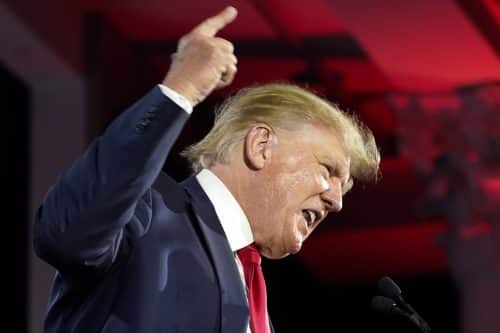
Donald Trump speaks at the Faith & Freedom Coalition’s “Road to Majority” event on June 17, 2022, in Nashville, Tennessee. (Mark Humphrey/Associated Press)
Like Trump, not all of the candidates are completely shy about their presidential aspirations when speaking at conservative Christian events. Nikki Haley, the governor of South Carolina before becoming ambassador to the United Nations in the Trump administration, spoke last week at the Christians United for Israel Summit. In her remarks, she hinted clearly at her potential run, saying that any deal with Iran made by the Biden administration will simply mean “the next president will shred it on her first day in office.” She quickly added amid the applause, “Just saying, sometimes it takes a woman.”
Another potential candidate, however, wants to make sure that doesn’t happen. Fox News commentator Tucker Carlson is reportedly testing the waters. So, he made a pilgrimage earlier this month to speak at an event of The Family Leader in Iowa — a group Trump addressed in a significant speech in 2015. In his remarks, Carlson specifically attacked Haley as a candidate who can’t be trusted because she cares too much what the mainstream media thinks about her. He also talked about faith.
“The hostility to faith but to Christianity — traditional Christianity in particular — is really one of the animating forces on the other side,” Carlson claimed about Democrats. “They hate that worldview because it’s a challenge to their claims of dominion. … So, if you’re a Christian conservative, holy smokes, you on a gut level feel threatened. And I feel it too.”
Yet, despite claims of persecution, the conservative Christian groups like the one the TV star addressed still hold significant political power — which is why he and other potential candidates are already showing up at such conferences and churches. As we can see with these speeches in just the last few weeks, the quest to gain the support of White evangelicals in the 2024 presidential race is already well underway.
Get cutting-edge reporting and analysis like this in your inbox every week by subscribing today!
The (Very Much Alive) Christian Coalition
“Reports of my death have been greatly exaggerated.”
That famous misquote of Mark Twain humorously alludes to the common mistake of prematurely declaring something finished or over. Like CNN posting obituaries of famous people who were still alive, the final demise of the Religious Right frequently appears in the media.
Consider Nina Burleigh’s 2018 cover story for Newsweek (that once-reputable publication that’s now became a “zombie magazine”) titled, “Evangelical Christians helped elect Donald Trump, but their time as a major political force is coming to an end.” It’s an account of demographic change — of one generation passing away and a younger one being disaffected — and profound cultural shifts. Less people are sitting in church pews and fewer Americans want to fight about gay marriage.
“Since the 1970s, White evangelicals have formed the backbone of the Republican base. But as younger members reject the vitriolic partisanship of the Trump era and leave the church, that base is getting smaller and older,” Burleigh wrote. “The numbers are stark: Twenty years ago, just 46 percent of White evangelical Protestants were older than 50; now, 62 percent are above 50. The median age of White evangelicals is 55. Only 10 percent of Americans under 30 identify as White evangelicals. The exodus of youth is so swift that demographers now predict that evangelicals will likely cease being a major political force in presidential elections by 2024.”
The embrace of Trump and all his serious character flaws supposedly aided that march towards irrelevance. Back in 2016, before Trump’s surprise presidential victory, Ed Kilgore predicted for New York Magazine’s “Intelligencer”: “The intergenerational tensions among conservative evangelicals likely won’t matter at all on Nov. 8. But down the road, the experience of sacrificing their integrity for a failed presidential campaign may have an impact on Christian conservative leaders who haven’t already traded their birthright of independence for a mess of Republican Party pottage.” Only problem was Trump won and those who voted for him justify it as righteous thanks to the Supreme Court overturning Roe.
Now, as America (hopefully) enters its post-Trump years, the prognostications of downfall continue. Last month, the New York Times’s opinion section featured Nate Hochman claiming “the religious right’s influence in the GOP has been declining since the Bush era.” He then affirmingly quoted George Hawley from The American Conservative: “Far from a kingmaker in the political arena, the Christian right is now mostly ignored.” The 2024 candidates apparently didn’t get the memo.
It’s not that these accounts are wrong about changing demographics. The trends are a serious headwind to maintaining political power. Moreover, there’s evidence that the politicization of religion is driving people away from Christianity, exacerbating the problem. And on a range of culture war issues the traditional positions of conservative Christians are out-of-sync with the broader American electorate.
Rather, the problem is the tunnel vision such thinking creates. Satisfied that demographics will be the Religious Right’s destiny, those opposed to its agenda risk missing how the movement uses antimajoritarian institutions to maintain power or how definitions of membership now depend less on religious belonging and more on political identity. It underestimates the ability of conservative religious leaders to manufacture new culture war issues to activate and rally the faithful. And it misses how White evangelicals are highly-organized voters who show up at the polls at levels exceeding their numbers in the general population.
in this issue of A Public Witness, we look at the enduring influence of White evangelicals within the GOP power structure, the early stages of the 2024 presidential campaign, and what it tells us to expect in the months and years ahead.
“For as long as there has been an organized Christian Right, there has been a myth (often perpetuated by people who should know better) that the movement is dead, dying, or diminished,” Fred Clarkson, senior research analyst with Political Research Associates, told us. “Such wishful thinking, and resultant underestimation of their formidable capacities, is one of the reasons why the Christian Right has done so well.”
And that’s why 2024 hopefuls are already showing up. These pilgrimages reveal that continuing power. But lingering over this early jockeying for position is the question of how much influence some of these leaders and events hold over rank-and-file evangelical voters.
“While Religious Right leaders like to think of themselves as kingmakers in the GOP presidential primary, 2016 proved them wrong,” Sarah Posner, a journalist and author of Unholy, told us. “Many (although not all) Religious Right elites endorsed Ted Cruz. But the base had another idea: Donald Trump.”
“Most of those elites came around to Trump by the time he held his notorious meeting with 1,000 leaders in New York in June 2016,” she added. “Many spent his presidency tethered to him through every scandalous twist and turn. No doubt they will want to play a role in crowning the 2024 nominee, but political calculations abound, specifically whether Trump will play as well in a general election post-Jan. 6.”
Posner’s comments draw attention back to the shifting nature of the word “evangelical.” As White evangelicals embraced Trump, the term is increasingly becoming a political signifier instead of a religious one. On top of that, White evangelicals remained among Trump’s most loyal defenders throughout his tumultuous presidency and beyond. Given efforts by Trump and his allies to redefine White conservative Christianity in his own image, has the label itself lost coherence? Now that they’ve gone MAGA, will White evangelicals look back?
Only time will provide those answers, but these early campaign stops testify to the movement’s enduring power. As the 2024 primary season draws near, the path to the Republican nomination still runs down the aisles of White evangelical churches.
As a public witness,
Brian Kaylor & Beau Underwood



